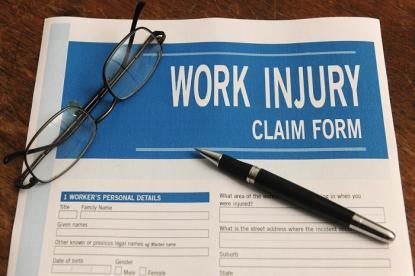How an employer immediately responds to an alleged workplace accident will go a long way in successfully defending a workers’ compensation claim. There are a few steps that should always be taken to manage a legitimate claim, or to better the chances for defeating a more questionable claim. Here you will find some of the best practices an employer can utilize when faced with an alleged work incident:
1. Document, document, document. As soon as an employee says he or she sustained an injury, make note of it. Your company should have an employee handbook that includes a workers’ compensation policy, and the best policies mandate immediate reporting. Ensure your company’s policy is being followed. Make note of the details, no matter how insignificant they may seem. For example, if your employee slipped and fell, make note of what was or was not on the ground at the time of the fall.
2. When a claim is not reported timely, it adds a different dimension. Once reported, go back and talk to any witnesses. Have them write a statement about what they know. In fact, some of the most effective statements concern what a co-worker does not know. If your employee claims he or she was hurt but colleagues cannot corroborate it, have them put it in writing. A statement that “I was working with Mary Jones on August 4, 2015, and I didn’t see her fall” can help to refute an alleged claim.
3. Treat the employee who claims an injury just as you would any other employee. No employer wants to compound the allegation of a work injury with a claim of retaliatory discharge or demotion. Treating the employee who alleges an injury the same as other employees does not mean dealing with him or her with “kid gloves.” If the injured associate acts contrary to your employee handbook, document the actions. If he or she acts in a manner that would lead to a termination of employment, don’t hesitate to apply company policies that support termination in appropriate circumstances.
4. A work accident does not shield employees from responsibility for their own actions. If the employee acts in a manner that causes his or her own termination, you may be able to raise a defense to some workers’ compensation benefits under a theory known as “voluntary abandonment.” In certain instances under Ohio law when there is a written work rule or policy that clearly defines a prohibited conduct, the rule has been previously identified by the employer as a dischargeable offense, and the rule or policy was known or should have been known to the employee, job termination may serve as a bar to some forms of workers’ compensation benefits.
5. Know when to call your third-party administrator and legal counsel. We can offer recommendations on how to most efficiently defend and/or manage a claim. Contact your Dinsmore attorney to learn more.


 i
i

